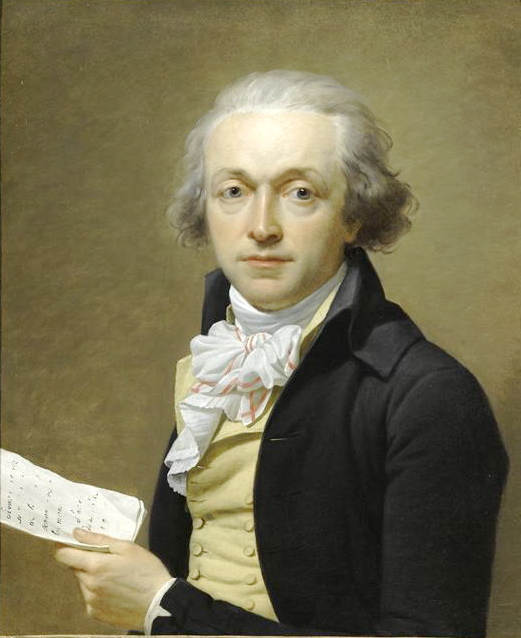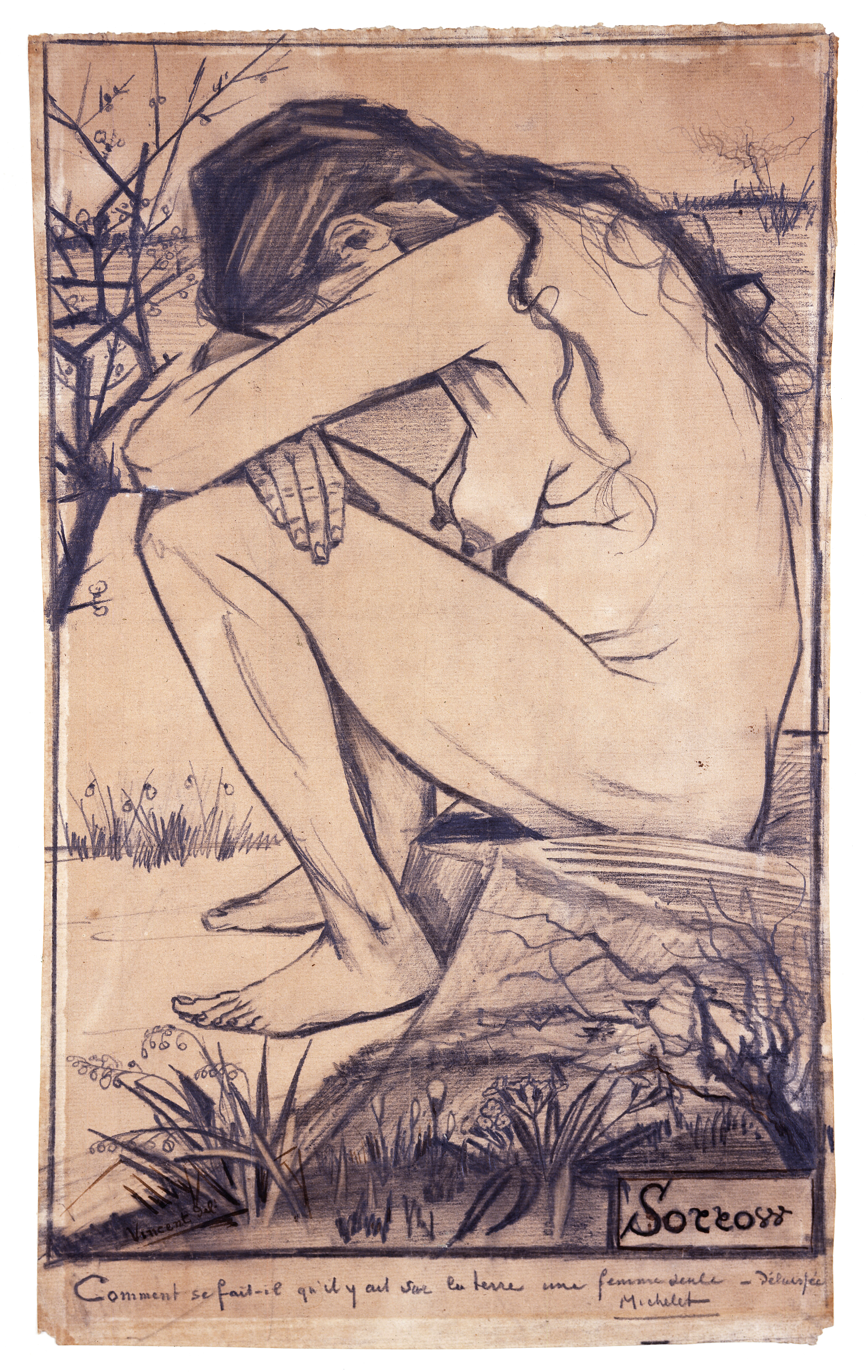|
Joseph Delaunay
Joseph Delaunay (24 December 1752, Angers – 5 April 1794, Paris) was a French deputy. He was national commissar at the Tribunal of Angers and, in 1791, he was elected as a deputy to the Legislative Assembly by the département of Maine-et-Loire. In 1792, he was re-elected as deputy to the National Convention by the same département. He was tried for corruption in the affair of the liquidation of the Compagnie des Indes Orientales, condemned to death and guillotined on 16 germinal year II (5 April 1794). Sources * ''Histoire de la Révolution française'' by Jules Michelet Jules Michelet (; 21 August 1798 – 9 February 1874) was a French historian and an author on other topics whose major work was a history of France and its culture. His aphoristic style emphasized his anti-clerical republicanism. In Michelet's ... External links *Delaunay, On the reinforcement of the rôle of Paris's Comité de surveillance - Tuesday 2 October 1792 {{DEFAULTSORT:Delaunay, ... [...More Info...] [...Related Items...] OR: [Wikipedia] [Google] [Baidu] |
Angers
Angers (, , ) is a city in western France, about southwest of Paris. It is the prefecture of the Maine-et-Loire department and was the capital of the province of Anjou until the French Revolution. The inhabitants of both the city and the province are called ''Angevins'' or, more rarely, ''Angeriens''. Angers proper covers and has a population of 154,508 inhabitants, while around 432,900 live in its metropolitan area (''aire d'attraction''). The Angers Loire Métropole is made up of 29 communes covering with 299,500 inhabitants (2018).Comparateur de territoire INSEE Not including the broader metropolitan area, Angers is the third most populous [...More Info...] [...Related Items...] OR: [Wikipedia] [Google] [Baidu] |
Paris
Paris () is the capital and most populous city of France, with an estimated population of 2,165,423 residents in 2019 in an area of more than 105 km² (41 sq mi), making it the 30th most densely populated city in the world in 2020. Since the 17th century, Paris has been one of the world's major centres of finance, diplomacy, commerce, fashion, gastronomy, and science. For its leading role in the arts and sciences, as well as its very early system of street lighting, in the 19th century it became known as "the City of Light". Like London, prior to the Second World War, it was also sometimes called the capital of the world. The City of Paris is the centre of the Île-de-France region, or Paris Region, with an estimated population of 12,262,544 in 2019, or about 19% of the population of France, making the region France's primate city. The Paris Region had a GDP of €739 billion ($743 billion) in 2019, which is the highest in Europe. According to the Economis ... [...More Info...] [...Related Items...] OR: [Wikipedia] [Google] [Baidu] |
Legislative Assembly (France)
The Legislative Assembly (french: link=no, Assemblée législative) was the legislature of the Kingdom of France from 1 October 1791 to 20 September 1792 during the years of the French Revolution. It provided the focus of political debate and revolutionary law-making between the periods of the National Constituent Assembly and of the National Convention. History Background The National Constituent Assembly dissolved itself on 30 September 1791. Upon Maximilien Robespierre's motion, it had decreed that none of its members would be eligible to the next legislature. Its successor body, the Legislative Assembly, operating over the liberal French Constitution of 1791, lasted until 20 September 1792 when the National Convention was established after the insurrection of 10 August just the month before. The Legislative Assembly entrenched the perceived left–right political spectrum that is still commonly used today. There were 745 members. Elections The elections of 1791, he ... [...More Info...] [...Related Items...] OR: [Wikipedia] [Google] [Baidu] |
Département
In the administrative divisions of France, the department (french: département, ) is one of the three levels of government under the national level ("territorial collectivities"), between the administrative regions and the communes. Ninety-six departments are in metropolitan France, and five are overseas departments, which are also classified as overseas regions. Departments are further subdivided into 332 arrondissements, and these are divided into cantons. The last two levels of government have no autonomy; they are the basis of local organisation of police, fire departments and, sometimes, administration of elections. Each department is administered by an elected body called a departmental council ( ing. lur.. From 1800 to April 2015, these were called general councils ( ing. lur.. Each council has a president. Their main areas of responsibility include the management of a number of social and welfare allowances, of junior high school () buildings and technical ... [...More Info...] [...Related Items...] OR: [Wikipedia] [Google] [Baidu] |
Maine-et-Loire
Maine-et-Loire () is a department in the Loire Valley in the Pays de la Loire region in Western France. It is named after the two rivers, Maine and the Loire. It borders Mayenne and Sarthe to the north, Loire-Atlantique to the west, Indre-et-Loire to the east, Vienne and Deux-Sèvres to the south, Vendée to the south-west, and Ille-et-Vilaine to the north-west. It also borders Ille-et-Vilaine in the north for just , France's shortest department boundary. Its prefecture is Angers; its subprefectures are Cholet, Saumur and Segré-en-Anjou Bleu. Maine-et-Loire had a population of 818,273 in 2019.Populations légales 2019: 49 Maine-et-Loire INSEE History Maine-et-Loire is one of the original 83 departments created during the |
National Convention
The National Convention (french: link=no, Convention nationale) was the parliament of the Kingdom of France for one day and the French First Republic for the rest of its existence during the French Revolution, following the two-year National Constituent Assembly and the one-year Legislative Assembly. Created after the great insurrection of 10 August 1792, it was the first French government organized as a republic, abandoning the monarchy altogether. The Convention sat as a single-chamber assembly from 20 September 1792 to 26 October 1795 (4 Brumaire IV under the Convention's adopted calendar). The Convention came about when the Legislative Assembly decreed the provisional suspension of King Louis XVI and the convocation of a National Convention to draw up a new constitution with no monarchy. The other major innovation was to decree that deputies to that Convention should be elected by all Frenchmen twenty-one years old or more, domiciled for a year and living by the prod ... [...More Info...] [...Related Items...] OR: [Wikipedia] [Google] [Baidu] |
French East India Company
The French East India Company (french: Compagnie française pour le commerce des Indes orientales) was a colonial commercial enterprise, founded on 1 September 1664 to compete with the English (later British) and Dutch trading companies in the East Indies. Planned by Jean-Baptiste Colbert, it was chartered by King Louis XIV for the purpose of trading in the Eastern Hemisphere. It resulted from the fusion of three earlier companies, the 1660 Compagnie de Chine, the Compagnie d'Orient and Compagnie de Madagascar. The first Director General for the Company was François de la Faye, who was adjoined by two Directors belonging to the two most successful trading organizations at that time: François Caron, who had spent 30 years working for the Dutch East India Company, including more than 20 years in Japan, and Marcara Avanchintz, an Armenian trader from Isfahan, Persia. History In 1604, French king Henry IV authorized the first ''Compagnie des Indes Orientales'', granting ... [...More Info...] [...Related Items...] OR: [Wikipedia] [Google] [Baidu] |
Guillotine
A guillotine is an apparatus designed for efficiently carrying out executions by beheading. The device consists of a tall, upright frame with a weighted and angled blade suspended at the top. The condemned person is secured with stocks at the bottom of the frame, positioning the neck directly below the blade. The blade is then released, swiftly and forcefully decapitating the victim with a single, clean pass so that the head falls into a basket or other receptacle below. The guillotine is best known for its use in France, particularly during the French Revolution, where the revolution's supporters celebrated it as the people's avenger and the revolution's opponents vilified it as the pre-eminent symbol of the violence of the Reign of Terror. While the name "guillotine" itself dates from this period, similar devices had been in use elsewhere in Europe over several centuries. The use of an oblique blade and the stocks set this type of guillotine apart from others. The display ... [...More Info...] [...Related Items...] OR: [Wikipedia] [Google] [Baidu] |
Jules Michelet
Jules Michelet (; 21 August 1798 – 9 February 1874) was a France, French historian and an author on other topics whose major work was a history of France and its culture. His Aphorism, aphoristic style emphasized his Anti-clericalism, anti-clerical republicanism. In Michelet's 1855 work, ''Histoire de France'' (History of France), he adopted the term "rebirth" that was used first in a work published in 1550 by the Italy, Italian art historian Giorgio Vasari. The term was used by Vasari to describe the advent of a new manner of painting that began with the work of Giotto, as the "rebirth (''rinascita'') of the arts." Michelet thereby became the first historian to use and define the French translation of the term, ''renaissance'',Murray, P. and Murray, L. (1963) ''The Art of the Renaissance''. London: Thames & Hudson (World of Art), p. 9. to identify the period in Europe's cultural history that followed the Middle Ages. Historian François Furet wrote that Michelet's ''History ... [...More Info...] [...Related Items...] OR: [Wikipedia] [Google] [Baidu] |
1752 Births
Year 175 ( CLXXV) was a common year starting on Saturday (link will display the full calendar) of the Julian calendar. At the time, it was known as the Year of the Consulship of Piso and Iulianus (or, less frequently, year 928 ''Ab urbe condita''). The denomination 175 for this year has been used since the early medieval period, when the Anno Domini calendar era A calendar era is the period of time elapsed since one '' epoch'' of a calendar and, if it exists, before the next one. For example, it is the year as per the Gregorian calendar, which numbers its years in the Western Christian era (the Copt ... became the prevalent method in Europe for naming years. Events By place Roman Empire * Marcus Aurelius suppresses a revolt of Avidius Cassius, governor of Syria, after the latter proclaims himself emperor. * Avidius Cassius fails in seeking support for his rebellion and is assassination, assassinated by Roman officers. They send his head to Aurelius, who persuade ... [...More Info...] [...Related Items...] OR: [Wikipedia] [Google] [Baidu] |
1794 Deaths
Events January–March * January 1 – The Stibo Group is founded by Niels Lund as a printing company in Aarhus (Denmark). * January 13 – The U.S. Congress enacts a law providing for, effective May 1, 1795, a United States flag of 15 stars and 15 stripes, in recognition of the recent admission of Vermont and Kentucky as the 14th and 15th states. A subsequent act restores the number of stripes to 13, but provides for additional stars upon the admission of each additional state. * January 21 – King George III of Great Britain delivers the speech opening Parliament and recommends a continuation of Britain's war with France. * February 4 – French Revolution: The National Convention of the French First Republic abolishes slavery. * February 8 – Wreck of the Ten Sail on Grand Cayman. * February 11 – The first session of the United States Senate is open to the public. * March 4 – The Eleventh Amendment to the United States Co ... [...More Info...] [...Related Items...] OR: [Wikipedia] [Google] [Baidu] |








